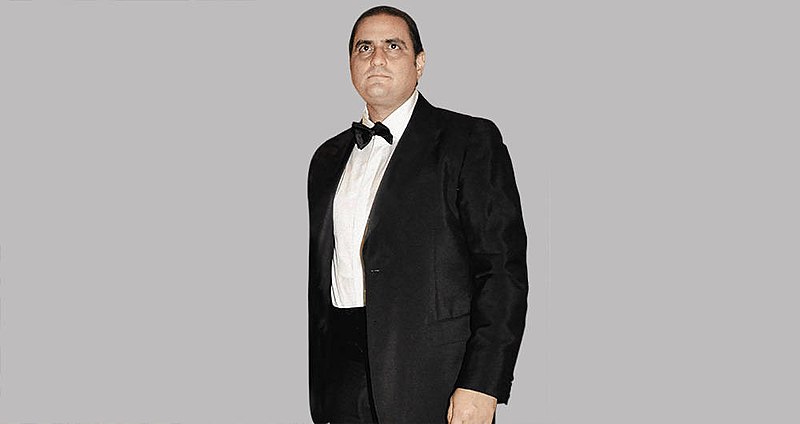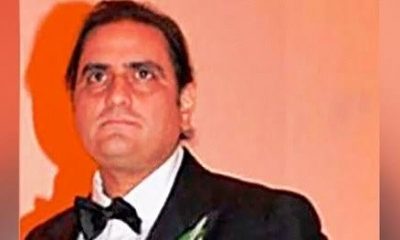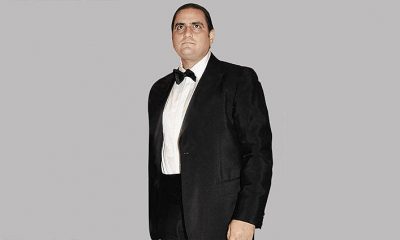News
REPORT: Alex Saab Illegal Detention Setting Bad Precedent In Humanitarian Mission

On June 12, 2020, Venezuelan Special envoy and Ambassador to African union, Alex Saab, was on a humanitarian mission, flying from Caracas to Iran to procure food and gasoline for the Venezuelan CLAP food assistance program when he was arrested during a stopover in Cape Verde.
Saab was detained based on the request of the Donald Trump-led United State government over allegations of money laundering. Analysts have argued that the continued detention and the planned extradition of the diplomat to face charges in America is politically motivated.
This is despite rulings by regional courts, citing the arrest of the businessman as illegal. On March, 15, the Economic Community of West African States (ECOWAS) court ruled that the continued detention and push for the extradition of Venezuelan diplomat, Alex Saab by the Cape Verde government is illegal.
The judgement of the ECOWAS court is based on the absence of a Red Notice when Saab was arrested in June last year. An INTERPOL “red notice” was not issued until a day after Saab’s arrest, this move not only amounted to kidnapping, but also an abuse of international law.
In the same vein, the Swiss government after an investigation into Saab’s transaction with Swiss banks, submitted that there was no sufficient evidence to suggest the diplomat engaged in money laundering. “…there is no additional element to continue the investigation on the count of Money Laundering…,” Geneva Public Prosecutor concluded, weighing information from the Union of Swiss banks (UBS)
However, Cape Verde authorities have refused to obey the order and a ruling by the Cape Verdean Supreme court on Tuesday, March 16 that Saab is extradited to the United States has strengthened this position.
US Guerilla War on Venezuela
Alex Saab’s case raises concerns on extraterritorial judicial abuse, violation of diplomatic status, and human rights, Montréal-based international human rights lawyer John Philpot said. He spoke on May 19 at a webinar sponsored by the Alliance for Global Justice and other groups on the US use of sanctions on some one third of the world
The Illegal detention of the diplomat, according to Stansfield Smith of Chicago ALBA Solidarity, is part of a larger US effort to use “lawfare” to impose its illegal sanctions, which the United Nations condemns as “unilateral coercive measures.on Venezuela.
Venezuela’s resistance to US interference, starting with Hugo Chávez’s Bolivarian Revolution two decades ago, has been punished by the US with mounting sanctions that they now amount to an asphyxiating blockade, causing severe shortages of food and medicine.
A report from the US government shows that “sanctions, particularly on the state oil company in 2019, likely contributed to the steeper decline of the Venezuelan economy.” Once a leading oil exporter, Venezuela’s ability to import equipment components for its oil refineries and light oil to mix with its heavy crude has been cut off by the US, devastating its productive capacity. The US has even blocked international oil-for-food swaps by Venezuela.
This crippling blow to its oil industry has negatively impacted the lives of ordinary Venezuelans, a development that prompted the venezuelan government to send the diplomat as its special envoy on humanitarian mission to Iran.
A politically Motivated Case
Geraldo da Cruz Almeida, Saab’s attorney in Cape Verde, explains to the webinar that the legal case against his client lacks substance. Alex Saab violated neither Cape Verdean nor Venezuelan law. Moreover, Saab’s diplomatic status should have given him immunity from arrest.
Also, Femi Falana, former President of the West African Bar Association, who represented Saab before the regional Economic Community of West African States (ECOWAS) Court called on President Biden to respect the rule of law and human rights in Africa. 15 of the 39 countries under the illegal US sanctions are African.
Under US pressure, Cape Verde continues to hold Saab. Ranking 175th and 185th among the countries of the world in terms of geographic area and economic size, respectively, resource poor, and dependent on tourism and remittances from abroad, the Republic of Cabo Verde is vulnerable to US strong-arm tactics. Shortly after Saab’s arrest, the US gifted $1.5 million to private sector entities in Cabo Verde on top of some $284 million total US aid in the last 20 years.
Indhriana Parada wrote in the webinar chat: “Greetings from Venezuela. We support the release of Alex Saab. It is a totally political case, and we want him back. Alex Saab did not launder money. Alex Saab bought food and medicine for Venezuela.”
The US State Department describes Cape Verde as “an important partner” where the “current administration has prioritized relations with the United States and Europe.” The US Bureau for International Narcotics Law Enforcement funds and supports activities in the small island country, while the Boston Police Department works with Cape Verde police.
While in custody in Cape verde, Saab specified that “they tortured me and pressured me to sign voluntary extradition declarations and bear false witness against my government.”
Alex Saab is not an isolated case. North Korean Mun Chol Myong has already been extradited to the US from Malaysia on similar charges to those used against Saab. His only offence was doing business according to international law rather than abiding by the US’s illegal measures.
In a defense of the rule of international law, a delegation of lawyers to Cape Verde in solidarity with Saab is being planned and a petition campaign on his behalf is underway.
-

 News4 days ago
News4 days agoInsecurity: Kogi Schools Resume On Monday
-

 Opinion4 days ago
Opinion4 days agoDon’t Pull the Plug: Why Nigerians Are Pleading for the U.S. to Extend Its Police Training Program — and Why It Must Synergize With New Military Arrivals
-

 Crime3 days ago
Crime3 days agoVigilante Reportedly Shoots Colleague Dead In Plateau
-

 Crime4 days ago
Crime4 days agoMan Shot Dead In Ambush Along Jol-Sho Road In Plateau





